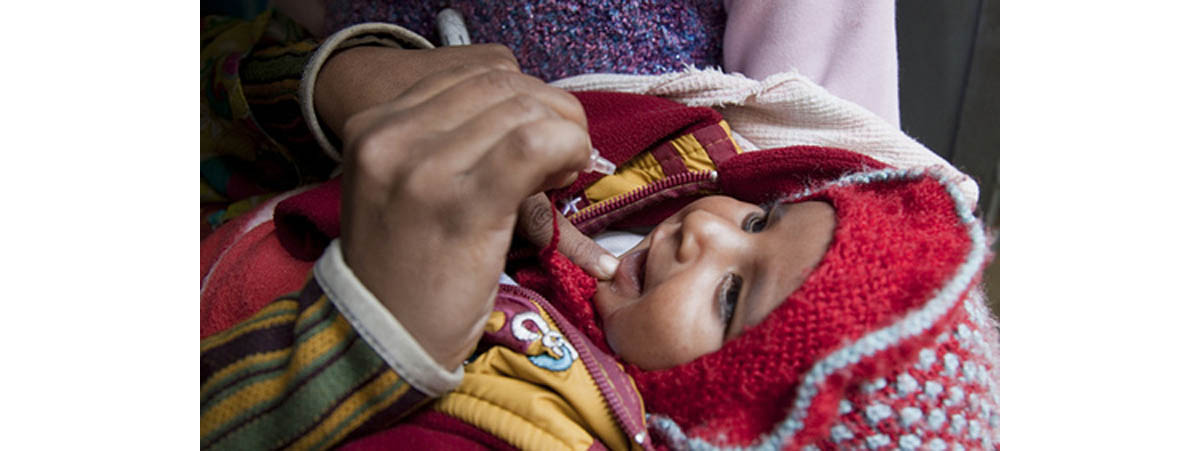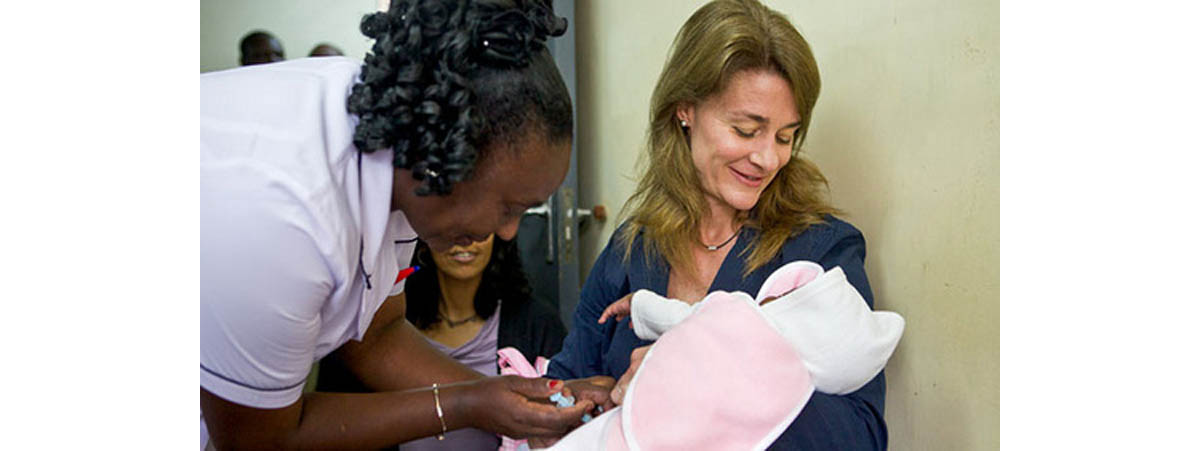In the era we're all currently living through, it has become all put impossible to mention the word "vaccine" without "COVID" following in the same breath. At the time this article was originally written, the SteadyHealth team strongly believed that the core of vaccine hesitance could be found in the fact that immunizations were so effective that most people who rejected them had never had to see the horrors of vaccine-preventable diseases first-hand.
The pandemic changed all that, but as COVID vaccines are being rolled out for younger children almost everywhere, it has become clear that the fear of vaccines has not gone away, and many people — parents included — remain more scared of vaccines than of the diseases they aim to prevent.
We're republishing this article about solid reasons to say "yes! yes please!" to childhood vaccinations, including COVID vaccines, to remind everyone of their power.
Measles was thought of as a normal childhood disease until fairly recently. Measles is unpleasant, with its fever, characteristic rash, cough, red eyes, and white spots in the mouth — just as the flu can be very unpleasant. Unless complications occur, measles really isn't a big deal; bed rest, vitamin C, and staying hydrated will take care of it.

Why should you vaccinate against a disease that will probably manifest as a minor annoyance if your child got it? Indeed, why should you vaccinate against whooping cough, since the vaccine against this disease isn't very effective anyway? Why do you need to vaccinate against the potentially crippling disease polio, if you do not live in one of the endemic countries?
Vaccines can cause adverse reactions, after all. Parenting is many things. It is also, inevitably, one of the grandest risk assessment games you'll ever play in your life.
An increasing number of parents is deciding that they'd prefer to go with the risk that foregoing childhood vaccines poses... perhaps because dying from “vaccine-preventable diseases” is so rare in first world countries? Perhaps because they've never seen someone crippled by polio, or die from measles-related diarrhea?
Indeed, vaccines pose a risk. Swansea, an otherwise pretty unremarkable small place in Wales, Britain, made headlines across the world after the British National Health Service (NHS) reported 800 confirmed cases of measles — that disease that really should not be a big deal, unless complications occur.
The thing is, complications are relatively common with measles. They include encephalitis (an accurate inflammation of the brain), bronchitis, and pneumonia. Back in the 1920s, the death rate for measles pneumonia was 30 percent. It's easy to see why doctors across the globe would rather see measles go the same way as smallpox, and the fight against this once common disease has been pretty successful so far. The number of measles deaths went down 71 percent between 2000 and 2011, and the World Health Organization has set itself the goal of eradicating measles completely by 2015.
That's in two years. The goal could be achieved through routine infant vaccination, and the WHO recommends two doses to offer protection against measles. Global coverage with the first dose was at 72 percent in the year 2000. By 2011, it was at 84 percent. The WHO does note large outbreaks of measles in several countries, including Congo, Ethiopia and India. In these and other developing countries, kids are still dying or sustaining permanent damage from measles and other vaccine-preventable diseases.
Could measles soon be a common sight in a neighborhood near you, too? How about other vaccine-preventable diseases? Absolutely yes, if vaccine rejectionism remains fashionable. So why should you still say yes to childhood vaccines?
Because Herd Immunity Is Real
Vaccine rejectionists often like to point out that vaccines are not 100 percent effective. They often wonder why doctors and parents who do vaccinate are so worried about their actions if vaccines work so well. “If they believe vaccines work, then they should also believe my unvaccinated kid can't infect their vaccinated kid” — it seems like a logical statement, at first sight.

No vaccine is 100 percent effective, and not every person is eligible to be vaccinated.
Imagine a population in which nobody has been vaccinated (like, in times before vaccines were invented). A person infected with a contagious disease will come into contact with a large number of people who did not acquire natural immunity against the disease, usually before any symptoms show up. The disease is thus able to spread through the population freely with varying consequences.
In populations where only a portion of people have been immunized, the contagious disease will be able to spread to some people — both those who haven't been immunized and those who have, since no vaccine is 100 percent effective.
If the majority of a population gets vaccinated, most will enjoy protection against infection and a disease has little chance of spreading. This means even those who can't be vaccinated because they are too young, pregnant, or immunocompromised are safe from infection. Your rare infected person may come into contact with a large number of people, but this does not lead to a massive outbreak.
Those who reject vaccines for their children often wonder “why they should take one for the team”. It could be their kid who ends up with an adverse reaction to a vaccine, and in that case the concept of herd immunity does them no good at all. This makes a whole lot of sense, and every parent wants to protect their child from harm. But if the majority of parents make this decision, nobody will benefit from herd immunity any more, and everyone ends up being at risk of contracting an infectious disease that could have been eliminated through a vaccination program.
The situation in Swansea is a good example of what happens if more parents choose not to vaccinate. The MMR vaccine that protects against measles is a vaccine that concerns many parents, and that is why measles got the chance to spread. We should be happy that it wasn't polio.
Because Anti-Vaccine Websites Aren't As Scientific As They Seem
The internet plays a large role in how we obtain information in today's world. It has made all kinds of information that was previously hard to come by available to the general public, and helped many people improve their lives in all kinds of ways. There are some problems with this mode of data collection and decision making, though.

One of the problems is that factual information may be available, but hard to interpret to the general public — particularly when it comes to complex subject matter including immunization. Another major problem is that any person with a computer and a modem can go ahead and put information that is not factually correct out there, and manage to make it look scientifically accurate (particularly to someone who does not have a deep understanding of the given topic).
Anna Kata is a professor of anthropology at McMaster University. Her paper, A postmodern Pandora’s box: Anti-vaccination misinformation on the Internet, investigated how reliable the information presented on the most popular anti-vaccine websites is. The full paper is available from the links box below, for anyone who is interested.
Americans performing a Google search on keywords like “vaccine” and “vaccination” are likely to run into anti-vaccine websites by chance, while all who actively look for anti-vaccine sites will find them.
What do these sites say about vaccines? Kata found that all of the websites she examined claimed that vaccines are poison, but that they neglect to mention that vaccine ingredients (like mercury and formaldehyde) do not appear in quantities toxic to humans. Yet, all sites claimed that these ingredients cause illnesses — including AIDS, diabetes, cancer and autism.
The most popular anti-vaccine sites also claim that vaccines are a conspiracy to make money, and that the true rate of adverse reactions to vaccines is kept from the general public. Most anti-vaccine sites purport that vaccines do not work, and that vaccine-preventable diseases aren't serious. Kata reports:
“Half the websites asserted that VPDs are trivial. One website described smallpox as “harmless under proper treatment [. . .] And not considered deadly with the use of homeopathy [. . .] And it certainly didn’t appear to be that infectious, if infectious at all”. Another site maintained that infections such as measles improved a child’s health, pronouncing, “the symptoms do not constitute the disease but the cure”. Serious complications of VPDs were not acknowledged – for example, that in developed countries, 1 in 1000 children with measles develop encephalitis and 1–2 in 1000 die.”
Because everyone knows that homeopathy is more evidence-based than vaccines, right? But you don't need to delve too deep into scientific-sounding websites to make a decision about whether or not to vaccine your kids. You can just participate in one of the many discussions on fora for “natural parents”, have another mom tell you that you can cure polio with large doses of vitamin C, and call yourself “educated” about vaccines.
Because Vaccine-Preventable Diseases Are Scary
Before anyone can determine whether vaccines are necessary, or if the benefits of vaccination outweigh the risks, they'd have to assess how serious the diseases a vaccine aims to prevent are first. The diseases currently vaccinated against include diphtheria, hepatitis B, measles, mumps, tetanus, pertussis, poliomyelitis and rubella.

Anna Kata, from the paper above, found that anti-vaccine campaigners did not acknowledge the possible complications of vaccine-preventable diseases. Ironically, first-world vaccine rejectionists are able to claim that most VPDs are trivial and can be treated with alternative medicine because they have rarely seen them first hand, thanks to vaccines.
It is possible to get through polio or tetanus and survive. It is also possible to get through measles or mumps without any long-term consequences. But vaccines were developed for vaccine-preventable diseases because these diseases can kill and cause permanent damage, even with the assistance of modern medicine and even in countries where the majority of the population has been immunized.
Any parent who is considering not vaccinating their child should read up about the normal symptoms and complications of any given VPD instead of assuming their child would be the one to walk away from a disease without complications, or that their child won't be infected anyway. Vaccines can kill, and vaccines can cause permanent damage in some. But the risk of that happening is far, far lower than it is with the actual disease.
Both the World Health Organization and the Centers for Disease Control and Prevention (CDC) provide details of vaccine-preventable diseases, and represent better sources of information than vaccine rejectionist websites that claim smallpox wasn't very contagious and could be cured with homeopathy do. Anyone can access these sources of information. Just to give you a taste:
-
10 to 20 percent of tetanus cases are fatal, even with the intervention of modern medicine.
-
95 percent of polio cases are asymptomatic, and fewer than one percent of cases lead to permanent paralysis. Of those who are paralyzed, 5 to 10 percent will die from paralysis that affects the respiratory system. Death rates increase with age.
-
1 in 20 children with measles will get pneumonia. One or two in 1000 of children infected with measles will die from it, in the United States. 8 percent will develop diarrhea, something that doesn't sound serious but can kill in developing nations.
-
Hepatitis B can life-long liver problems. No, your toddler doesn't need to use IV drugs to acquire it — what if an infected child bit yours at the playground?
-
1 in 4 children who get pertussis will have pneumonia, and 1 or 2 in 100 will have convulsions. 1 or 2 in 100 will die.
How likely are vaccines to cause an adverse reaction or death? Much less likely than the diseases are, and the Vaccine Adverse Event Reporting System (VAERS) is a good place to start looking into the actual numbers.
Because Most Vaccine Rejectionists Don't Know What They're Doing
And you could be one of them. You don't want to believe you're all educated about vaccines, only to rush to your computer the moment your child gets a rash, a fever, or a cough. Does your child have measles, mumps, or just an allergy? Your child appears to have whooping cough. What was the natural treatment again? Can a wasp sting cause tetanus?
In order to find out more about vaccine rejectionists, I followed several internet discussion boards where they come together to discuss their choice. The above questions are incredibly common on these boards — curious, really, for a group of people who claims to know more about vaccines and vaccine-preventable diseases than doctors do.
- Photo courtesy of Gates Foundation by Flickr : www.flickr.com/photos/gatesfoundation/5819113192/
- Photo courtesy of Sylvain Thomin by Flickr : www.flickr.com/photos/sylvainthomin/4115700585/
- Photo courtesy of The global health nonprofit PATH by Flickr : www.flickr.com/photos/pathphotos/5225170834/
- Photo courtesy of Gates Foundation by Flickr : www.flickr.com/photos/gatesfoundation/5436401827/

